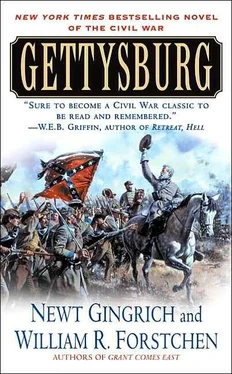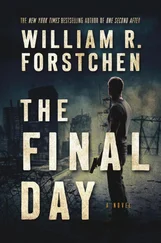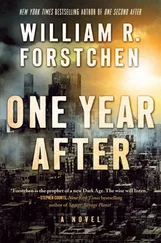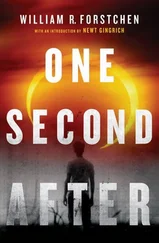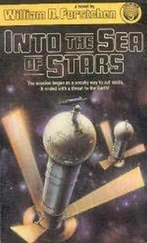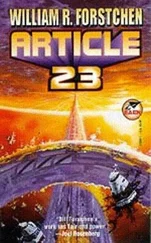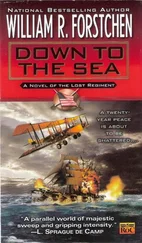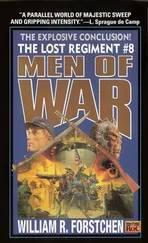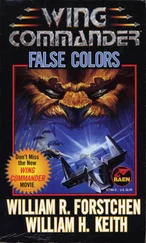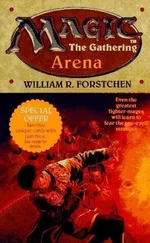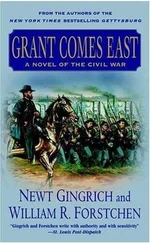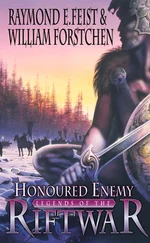William Forstchen - Gettysburg
Здесь есть возможность читать онлайн «William Forstchen - Gettysburg» весь текст электронной книги совершенно бесплатно (целиком полную версию без сокращений). В некоторых случаях можно слушать аудио, скачать через торрент в формате fb2 и присутствует краткое содержание. Жанр: Исторические приключения, на английском языке. Описание произведения, (предисловие) а так же отзывы посетителей доступны на портале библиотеки ЛибКат.
- Название:Gettysburg
- Автор:
- Жанр:
- Год:неизвестен
- ISBN:нет данных
- Рейтинг книги:5 / 5. Голосов: 1
-
Избранное:Добавить в избранное
- Отзывы:
-
Ваша оценка:
- 100
- 1
- 2
- 3
- 4
- 5
Gettysburg: краткое содержание, описание и аннотация
Предлагаем к чтению аннотацию, описание, краткое содержание или предисловие (зависит от того, что написал сам автор книги «Gettysburg»). Если вы не нашли необходимую информацию о книге — напишите в комментариях, мы постараемся отыскать её.
Gettysburg — читать онлайн бесплатно полную книгу (весь текст) целиком
Ниже представлен текст книги, разбитый по страницам. Система сохранения места последней прочитанной страницы, позволяет с удобством читать онлайн бесплатно книгу «Gettysburg», без необходимости каждый раз заново искать на чём Вы остановились. Поставьте закладку, и сможете в любой момент перейти на страницу, на которой закончили чтение.
Интервал:
Закладка:
Henry walked stiffly; the long hours in the saddle, the grueling heat of the thirty-mile ride, even after the sun had set, had been exhausting. The roads he had traveled had been choked with begrimed, weary men, supply wagons, thousands of exhausted stragglers, and long columns of his artillery, cloaked in swirling clouds of powdery dust that clogged the nostrils and left one's eyes feeling as if they had been rubbed with sandpaper. All of them, near on to a hundred thousand men of the Army of the Potomac, tangled into a sweltering, cursing, tidal mass, were flowing northward and looking for a fight.
A subtle, electric-like sense now permeated the army, knowing that somewhere up ahead a battle was brewing, building like a summer storm concealed on the far side of the mountains but already felt and tasted in the air. It created a strange mix of feelings. The long-ago dreams of glory were dead. The men on the roads were the pragmatic survivors of a new type of warfare fed by factories and railroads. They knew there was precious little glory to be found when charging an entrenched foe. And yet, in spite of their knowledge of the horror that awaited them, there was a grim determination, a desire to be at it and to finish the job. Somewhere up ahead, perhaps just around the next bend, there might be an end to it all, the decisive fight that would decide the issue.
And so the long, swaying columns had flowed along roads stretching from Frederick clear down to the suburbs of Washington, the old Army of the Potomac, which he loved with all his soul and in spite of all its defeats, still they marched. No longer were they boys filled with a dream of some desperate glory… they were veterans heading to a fight
Tomorrow perhaps, the day after, there would be another battle, and more than one of them was walking to.his death. As Henry rode among them throughout the long, hot, dusty day, he was filled with a morbid curiosity, looking into faces, wondering how many of them, before the week was out, would never laugh again, would never again write home asking a sweetheart to wait promising to return, asking a mother to send a favorite treat and a new pair of socks, or manfully telling a father not to worry.
He had reined in and dismounted atop a low rise just before sunset awed by the panorama laid out before him. Far back to the southern horizon a long column, like a slow-moving serpent or giant prehistoric creature, was crawling toward him. It was a creature of fifty thousand legs, tens of thousands of wheels, flashes of evening light reflecting off steel, iron, and bronze gun barrels, crawling toward him, sweeping past, flowing down into the valley ahead, and the sight of it filled him with wonder.
This is the beating heart of the Republic, Henry thought, men rising up from a thousand hamlets, towns, farms, and cities, all coming to this place, moving now like some great horde from out of ancient history. Shadowy in the dust, he had watched them pass, tin cups and empty canteens clanging on hips, an occasional drum or fife playing in a vain effort to keep up the pace, then falling silent.
Conversations, as if rising from the throats of ghosts, drifted around him, someone talking about a new daughter, proudly showing an ambrotype, a snatch of laughter at the punch line to an obscene joke; a stanza of a song floated in the air counterpointed by a sergeant cursing.
A captain stepped out of the column, helping an exhausted boy to the side of the road, where he collapsed in a clatter of equipment and began to cry as his comrades continued on. The captain gave the boy his canteen before turning to rejoin the never-stopping column. The captain caught Henry's eye for a second. Nothing was said between them, just a sort of embarrassed acknowledgment of this small act of mercy for a boy who was played out and no longer of use to an army that needed men who could continue to march toward death. The boy lay back, features deathly pale, and passed out, canteen clutched in his hands.
Where he had stopped, a dead Confederate trooper and a couple of dead horses lay. A pile of dirt marked where several Union troopers, killed in a skirmish, had been hastily buried by their comrades. Few in the passing column even noticed. Long ago this army had gotten used to fresh graves, dead men, and horses lying by the side of roads, acting as signposts for what was to come.
He casually looked over at the Reb. The heat was beginning to take effect so that his threadbare uniform, which the boy had undoubtedly once been so proud of, was now tight-fitting, bulging, a stir of wind bringing to him the sickly sweet smell as the boy began to return to the earth.
Henry backed away even as a couple of men in the column pointed out the corpse and urged a young lieutenant, obviously new to his job, to go over and take a look. The lieutenant grinned weakly and ignored the jibes, a sergeant threatening the two with a burial detail for the Reb if they said another word.
Having relieved himself by the side of the road, making sure to stand a respectful distance away from the corpse and the exhausted boy, Henry remounted and fell in with the river of men.
The long, flowing column dropped down from the crest of the hill, continuing northward, the land ahead cloaked in twilight All were disappearing into the darkness, fading from view.
There will come a day, Henry thought when we shall be no more. Whether we die tomorrow, or die abed fifty years hence, this moment will forever haunt us. We'll remember the sounds, the smells, the feel of this summer evening, and turn back to it in our memories as eagerly as we remember a first love. But even then the memory will fade, and finally it will be lost to the world forever. Perhaps 100, 150 years from now, as an army of ghosts, we might return to this place, to this road in Maryland, marching toward Pennsylvania and a dark rendezvous with death.
Henry looked again at the men around him and wondered how many of them saw it as well and thrilled to the wonder of it and how many of them would still be alive a week from now. Will I even be alive this time tomorrow? he wondered
Strange, there was no fear. He smiled at the thought and took a secret pride in it When he had charged the Mexican line at Chapultepec-a mad, insane dash with a single six-pound gun, galloping to within a hundred yards of their line, unlimbering and opening fire-everyone said he had been fearless. Little did they know the terror of that moment or again at First Bull Run when he'd deployed a battery at the bridge, keeping the line of retreat open for the last stragglers. Those had been terrifying moments; it was simply a question of not showing it
Something whispered to Henry that death was close, very close, a shadow waiting just on the other side of the next hill. And yet, to have this moment was worth everything. He knew he did not have the words to articulate it, — to express either to himself or to the rest the feelings of this instant; others could do that far more eloquently. But mere was a deep sense of acceptance; and falling in alongside a regiment from Maine, he pushed on.
The regiment's exhausted colonel, slumped in his saddle, nodded a greeting. They rode together in silence into the twilight until the regiment was ordered to break for the night Henry rode on alone to the outskirts of Frederick and a meeting with his new commander, George Meade.
He caught the eye of a staff officer and asked directions. A tent pitched at the edge of a peach orchard was pointed out Henry made his way through the mass of hangers-on, orderlies, staff officers, reporters, all the annoyances that always trailed a headquarters, and was surprised when, after showing the written summons from Meade, he was immediately led into the presence of the new commander.
He had never been close to George Meade, who until less than a day ago had commanded Fifth Corps, but then no one was close to Meade. It struck Henry as a hell of a way to run an army. Here they were heading into a fight and Washington decides to switch commanders yet again. Joe Hooker was out as commander of the Army of the Potomac; George Meade was in.
Читать дальшеИнтервал:
Закладка:
Похожие книги на «Gettysburg»
Представляем Вашему вниманию похожие книги на «Gettysburg» списком для выбора. Мы отобрали схожую по названию и смыслу литературу в надежде предоставить читателям больше вариантов отыскать новые, интересные, ещё непрочитанные произведения.
Обсуждение, отзывы о книге «Gettysburg» и просто собственные мнения читателей. Оставьте ваши комментарии, напишите, что Вы думаете о произведении, его смысле или главных героях. Укажите что конкретно понравилось, а что нет, и почему Вы так считаете.
